Solomon2
BANNED

- Joined
- Dec 12, 2008
- Messages
- 19,475
- Reaction score
- -37
- Country
- Location

http://nation.com.pk/blogs/03-Feb-2017/new-chapters-in-resistance
New chapters in resistance
Joseph Colony's residents still haven't recovered from the trauma of 2013's mob violence
February 03, 2017, 2:29 pm
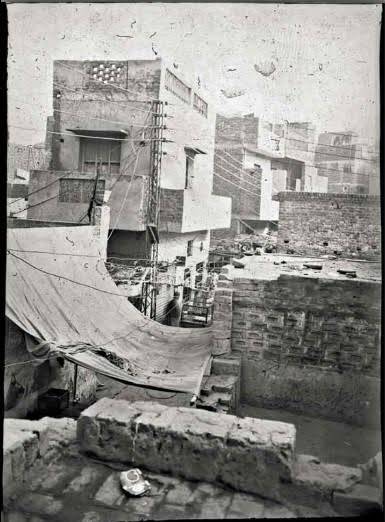
"115 charged with burning Christians’ homes acquitted", "Mob violence: 106 acquitted in Joseph Colony case", "ATC acquits 115 suspected arsonists over lack of evidence", the headlines glared at me. Case closed. Mamla rafa dafa. Bring in the next case, bailiff.
Based on my observations during recent visits to Joseph colony, the residents have still not recovered from the trauma of 2013 mob violence. Fear lurks in dark street corners. There is apprehension in the air. There is a heaviness in people's voices, a dark maturity in children's eyes. Be careful of what you say. Don't say too much. Not a word. Words kill. Words burn. Words bring pain, even if you have not said them. You can still see charred patches on the walls where the hurriedly applied layer of paint peels off, like a bandage on an infected wound. Horror peeks from underneath. Sorrow seeps through the walls. Apply a thin coat of paint to conceal histories of discrimination. Apply two coats for maximum coverage of state-sanctioned violence. Use primer for a smooth finish over crimes of hate. Let it dry.
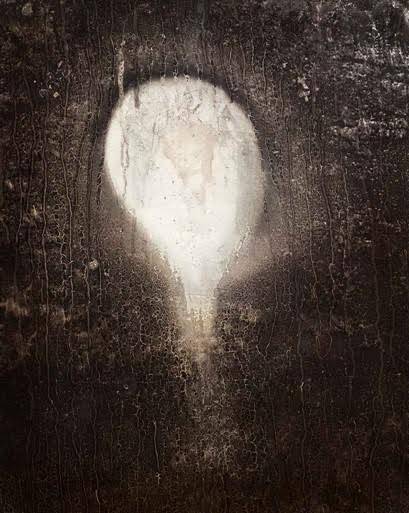
A Church in Negative (2013) by Malcolm Hutcheson
The mob had burned everything. Blackened walls, mangled bits of furniture, piles of ashes, caved in ceilings — I vividly remember it all. The crunching noise as I stepped on a broken toy in the street, the dried tears of a young mother standing in line to fill water in a blue plastic canister from a tap, the flies crawling on the defeated wrinkled face of an old woman in the relief camp as the feeble hand holding a palm-leaf fan twitched in her lap, tired from the effort of lifting it up. I suspect she was tired of a lot of things. How can I forget it all? After all, it was done in my name, to protect the religion I practice. "...acquitted over lack of evidence", "...inconclusive evidence against the accused", "testimonies did not add up..."
Struggle over the City
The religion somehow still remains threatened. This year dawned with the city of Lahore brought to a grinding halt by Tehreek-e-Labbayk ya Rasaool, Tehreek Fidayen-e-Khatm-e-Nabuwat and Pakistan Sunni Tehreek in an attempt to save Islam. Two days after the ‘Islam Bachao’ rallies, I found myself outside Lahore Press Club on a foggy afternoon sipping tea to keep myself warm while sitting next to three student organizers at the bench under the neem tree opposite the gate. Chacha who runs the tea stall gave us that familiar look that said phir ihtejaaj karnay aaey ho? “Here to protest again, eh?” The students calmly smoked their Bensons as they waited for others to show.
“Is anyone still at Liberty?”
“No. I texted them that 144 has been imposed on Liberty side”, the student in his final year of law school answered.
“What do you make of these?” The Chartered Accounting student nodded at the men in riot gear hopping out of the Police Truck.
“We’ll see,” he replied.
We watched as two more Police trucks and a prison van pulled in on the road. The student sitting next to me quietly kept humming Jalib’s Islam ko Khatra Nahin as more students started arriving. The police in their riot shields vigilantly watched as the law student got up and addressed the few who had gathered. The tension was fused into the winter air. On the DSP’s signal, the policemen started pushing the students into the prison van. As the students pushed the policemen off, the reporter on the sidelines clicked his camera incessantly while dodging the batons. As the others dispersed, the police arrested some 11 students from Press Club but failing to come up with any charges released them after a few hours.
In a counter-protest to ‘Islam Bachao’ rallies, these students, associated with Democratic Students' Alliance, an informal leftist student group, were trying to organize an ‘Insan Bachao’ march to provide a voice against sectarian hate and unjust laws through an effort to claim their city. Their focus was to protest against extremism and celebrate the religious and cultural diversity of Lahore, however, following a stream of threats and hate mail issued under the name of Alama Khadim Hussain Rizvi and Maulana Ashraf Jalali on social media pages claiming to be run by Tehreek-e-Labbayk ya Rasool and Sunni Tehreek, they relocated their protest but were subsequently detained by the police. The struggle over right to the city has often been marked by tension between right and left wing groups. Nearly two weeks later, another such confrontation ensued when groups associated with Tehreek-e-Labbayk ya Rasool and Sunni Defence mobilized under ‘Islam Bachao’ pelted stones at a rally for ‘missing’ activists claiming the latter to be blasphemers. The rally organized by National Students Federation (NSF), Girls at Dhabas and other activist groups was baton charged by the police and forced to disperse. The effort to save Islam was also manifested in the kidnapping and torture of a student by Jamiyat in Punjab University for condemning the disappearances of bloggers. The battle lines seem to have been drawn already.
Of Hope in Dark Places
There was much commotion at the Seventh Day Adventist Church this Sunday afternoon. College students in white lab coats were moving around, taking pulse and blood pressure, giving out medicines. Students from Fatima Jinnah Medical University organized a free medical camp in Joseph Colony this weekend. This was the third medical camp organized by Democratic Students' Alliance in the past few months. Joseph Colony is located in a largely working class area surrounded by metal scrap yards near Badami Bagh, right next to an industrial plant, which is the source of income for most manual laborers and factory workers in the locality. In the tightly packed neighborhood with an abysmal sanitation system – a slum by all definitions –, the industrial waste from the factory pollutes the local air and water supply causing a host of diseases ranging from Hepatitis to throat and chest infections among the residents. Disease impregnates the very air people breathe. Since summer of 2016, when DSA organized a summer school for children in the colony, these students have been mobilizing their resources to provide free medical aid and other assistance off and on to the residents. Working on the principle of Masihi-Tulaba Ittehad (Christian-Student Solidarity), they try to equip locals with education and tools for self-sustenance and political organizing.
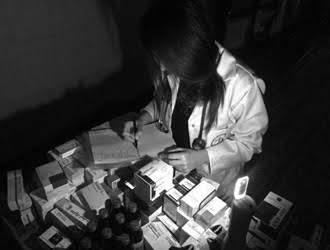
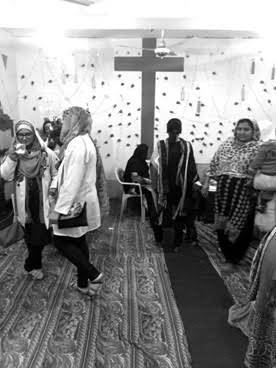
Democratic Students' Alliance medical camp in Joseph Colony, 29 January, 2016
These are some diligent student activists, brought together by their leftist politics, who dedicate their time and labor to building communities and offering support. They started working in Joseph Colony last year with a firm belief in struggling for progressive ideals alongside the working classes. In addition to members from Joseph Colony itself, they have chapters in various colleges and universities of Lahore.
It makes sense that the work of these students is deeply influenced by Edhi – they named their summer school Edhi Sahab Ki Sangat. No revolution can be built without care and love, especially for the most vulnerable. Healing is radical work. It was Che Guevara who famously said, "One has to grow hard but without ever losing tenderness." This mode of organizing has historically been neglected or least acknowledged due to compulsory feminizing (hence undervaluing) of care-work. Given the failure of the state in providing basic facilities, NGOs have often filled this gap in Pakistan through a depoliticized mode of service-provision. When the state is absent or complicit in violence, building spaces which focus on a justice-centered concept of health is essential to creating structures of redistribution in communities of resistance. Care-giving is political work.
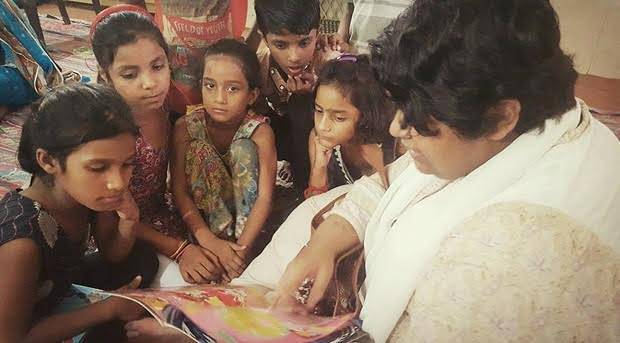
Comrade Zahra reads a story to children. DSA set up a small library for children in the local church on 8 October 2016
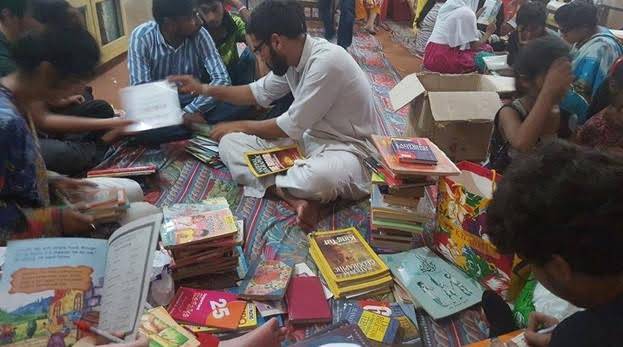
The tide is changing. There is a new hint of resistance in the air. Let me put it this way: On one hand you have those who sit on their high minbars to preach hate and incite violence through inflammatory speeches and then there are those who read warm stories to children and sing songs of peace and freedom; there are those who burn and destroy in the name of religion and then there are those who pick up the pieces and offer help and comfort to uphold the teachings of the same faith; there are those who break and those who rehabilitate; there is a difference between a charged mob rejoicing at the sight of burning Bibles, sacred crosses and committed, brave students working for peace and justice in the same church. Somewhere in that difference, stowed in the footnotes of history, you will find hope germinating. This difference is what promises a new generation of students rejuvenating leftist political activism in Pakistan.
More by Mehlab Jameel
Mehlab Jameel is a researcher and activist based in Lahore who is currently training to be an anthropologis
FEBRUARY 7, 2017
MODERN TOKYO TIMES
Pakistan Christians Get No Justice: Muslims who Burnt Christian Homes and Churches are Acquitted
Murad Makhmudov and Lee Jay Walker
Modern Tokyo Times
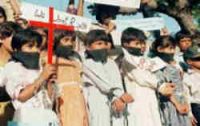
Religious minorities in Pakistan were once more betrayed by a biased system that tolerates the destruction of Christian homes and Christian churches. In 2013, the Christian area of Joseph Colony was devastated when a crowd of approximately 3,000 Muslims set the area on fire. This led to the Christian community fleeing after over 150 Christian properties were burnt to the ground and two Christian churches destroyed. All this was done based on an alleged blasphemy comment against the prophet of Islam.
In other words, religious minorities, including minority Muslim sects in Pakistan, are often targeted based on the most whimsical charges of hearsay. The daily persecution suffered by Christians, Hindus, Sikhs, and Muslim minority sects, is endless in Pakistan. Similarly, the Shia Muslim community faces endless bouts of Sunni Islamist terrorism and Christian holy places also face being attacked. At the same time, Christian and Hindu women face being raped and kidnapped and being converted to Sunni Islam.
Therefore, the acquittal of Muslims in 2017 who ransacked Christian properties and Christian churches in 2013 isn’t a surprise. After all, the government of Pakistan was instrumental in the rise of the Taliban and the nation state knows full well that militant Sunni Islamist schools are indoctrinating and sowing the seeds of hate.
The New York Times in 2013 reported, “An enraged Muslim crowd attacked a Christian neighborhood in Lahore on Saturday, setting fire to more than 150 houses and 2 churches, in a new display of religious intolerance as Pakistan reels from violent persecution against other minorities.”
In 2009, Muslims based on similar alleged blasphemy charges attacked Christian homes. This attack resulted in a mass atrocity against a Christian family called Hameed because Muslims burnt six family members alive and killed the grandfather by shooting him dead. The burnt alive Christians included Umaya aged 13 and Musa aged 6.
The New York Times in 2009 reported, “The blistered black walls of the Hameed family’s bedroom tell of an unspeakable crime. Seven family members died here on Saturday, six of them burned to death by a mob that had broken into their house and shot the grandfather dead, just because they were Christian.”
Turning back to the acquittal of 115 Muslims who burnt Christian properties and Christian churches in 2013, the Pakistan Christian Post says, “The photos of Muslim attackers were captured and appeared in national print media and broadcasted by electronic media burning homes and damaging households but police not presented that evidence during court proceedings to save Muslim culprits.”
Once more, Christians in Pakistan are being told that they are dhimmis and liable to face the sword of Islam without any recompense in the courts of this nation.

Catholics dismayed by acquittal of anti-Christian mob in Pakistan
- Nirmala Carvalho
February 1, 2017
CRUX CONTRIBUTOR

A member of the Pakistani Christian community holds a placard as he shouts slogans during a protest rally. (Credit: Reuters/Mohsin Raza.)
Catholic organizations expressed shock after the acquittal of 115 people suspected of burning more than 100 Christian homes in 2013 in Pakistan. Hundreds of residents were displaced following the violence while the perpetrators of the attack were freed due to "insufficient evidence."
MUMBAI, India - Public outcry by Catholic organizations followed the acquittal of 115 people suspected of burning more than 100 Christian homes back in 2013 in Joseph Colony, Badami Bagh, located in Pakistan near the country’s border with India.
On March 8, 2013, a mob of more than 3,000 Muslims armed with sticks, clubs, and stones rampaged through Joseph Colony, damaging properties including two Churches and desecrating dozens of bibles. Hundreds of residents were displaced following the violence.
“This verdict is increasing the fears and doubts in the community that the space for civil society is shrinking, and those raising a voice for seeking justice are being ignored,” Cecil S. Chaudhry, Executive Director of the National Commission for Justice and Peace, an organization of the Pakistani Catholic Bishops’ Conference, told Crux.
The attack was in retaliation for an alleged blasphemous comment against the prophet Mohammed by Sawan Masih, a Christian road sweeper in his late twenties, during the course of a conversation with a Muslim friend. Masih was sentenced to death in a verdict delivered in 2014, a decision he has appealed.
Hundreds of Pakistanis are sentenced to death for blasphemy convictions, which serve as an easy back door to persecute religious minorities and even settle petty grievances. The Pakistani Senate’s human rights panel which was created to address possible solutions to this issue met this month for the first time in decades.
During the hearing, which took place on January 28, the defense attorney, Ghulam Murtaza Chaudhry, argued that the prosecution had failed to bring even a single piece of evidence to establish the charges against the suspects.
“This incident not only spread a wave of terrorism in Lahore, but also brought a bad name to Pakistan,” Murtaza told local papers.
The presiding judge of the Anti-Terrorism Court (ATC) in Pakistan, Chaudhry Mohammad Azam, acquitted the suspects, who were already on bail, according to a local newspaper.
“It’s strange that not even one person was found to be involved in the attack. Especially when there was media present during the attack on Joseph Colony,” said Cecil, adding that video evidence could easily be found.
Cecil also underlined how in the case of the mob violence by Christians following Church bombings in Youhanabad, which resulted in the lynching of two people, arrests were made without such evidence.
“If a whole mob can be acquitted, then why not in the case of those arrested in the Youhanabad mob incident?” Cecil told Crux.
Religious freedom challenges in India, and especially the persecution of Christians, have caused growing concerns as violence and intolerance surge in the country.
“We demand that courts be allowed to function free from all types of pressure,” Cecil said. “It seems that in this case the pressure from the negative forces is weighing down.”
Father James Channan, Director of the Peace Center in Lahore, Pakistan, told Crux that he was deeply shocked, saddened and disappointed by the judge’s decision.
“This kind of judgement gives all minorities and especially Christians in Pakistan a grave sense of insecurity and fear. The residents of Joseph Colony are living with a sense of great shock and constant fear that their house could be attacked anytime and no justice will be given to them,” Channan said.
The attack on Joseph Colony has also been widely condemned by Muslims, human rights activists and religious scholars such as Maulana Abdul Khabir Azad, Grand Imam of the Badshahi Mosque in Lahore and by Hafiz Tahir Mehmood Ashrafi, Chairman of the Pakistan Ulama Council.


